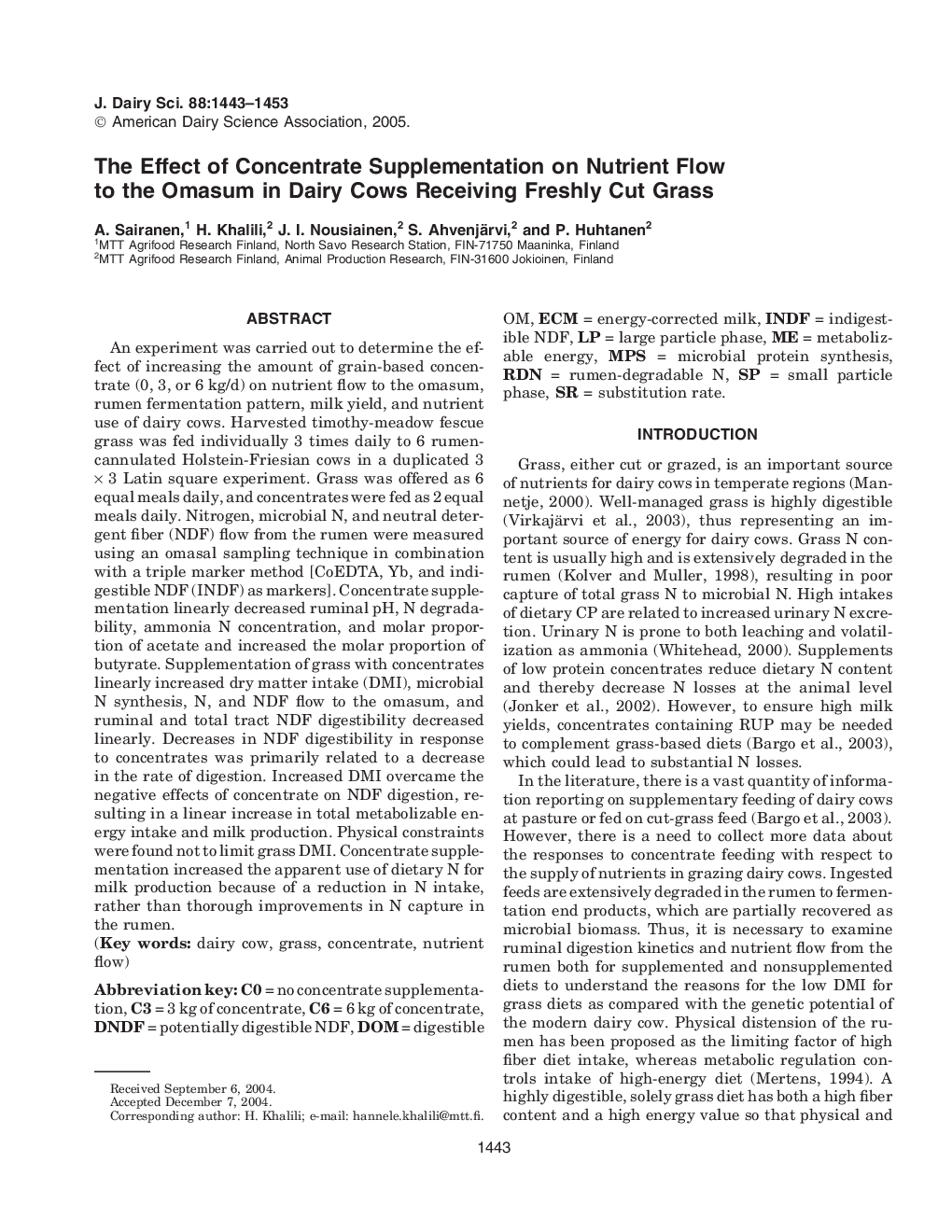| Article ID | Journal | Published Year | Pages | File Type |
|---|---|---|---|---|
| 8981225 | Journal of Dairy Science | 2005 | 11 Pages |
Abstract
An experiment was carried out to determine the effect of increasing the amount of grain-based concentrate (0, 3, or 6Â kg/d) on nutrient flow to the omasum, rumen fermentation pattern, milk yield, and nutrient use of dairy cows. Harvested timothy-meadow fescue grass was fed individually 3 times daily to 6 rumen-cannulated Holstein-Friesian cows in a duplicated 3Â ÃÂ 3 Latin square experiment. Grass was offered as 6 equal meals daily, and concentrates were fed as 2 equal meals daily. Nitrogen, microbial N, and neutral detergent fiber (NDF) flow from the rumen were measured using an omasal sampling technique in combination with a triple marker method [CoEDTA, Yb, and indigestible NDF (INDF) as markers]. Concentrate supplementation linearly decreased ruminal pH, N degradability, ammonia N concentration, and molar proportion of acetate and increased the molar proportion of butyrate. Supplementation of grass with concentrates linearly increased dry matter intake (DMI), microbial N synthesis, N, and NDF flow to the omasum, and ruminal and total tract NDF digestibility decreased linearly. Decreases in NDF digestibility in response to concentrates was primarily related to a decrease in the rate of digestion. Increased DMI overcame the negative effects of concentrate on NDF digestion, resulting in a linear increase in total metabolizable energy intake and milk production. Physical constraints were found not to limit grass DMI. Concentrate supplementation increased the apparent use of dietary N for milk production because of a reduction in N intake, rather than thorough improvements in N capture in the rumen.
Keywords
Related Topics
Life Sciences
Agricultural and Biological Sciences
Animal Science and Zoology
Authors
A. Sairanen, H. Khalili, J.I. Nousiainen, S. Ahvenjärvi, P. Huhtanen,
